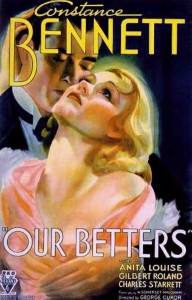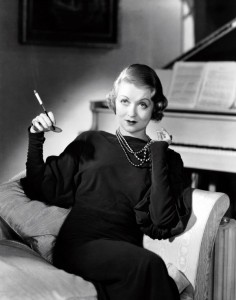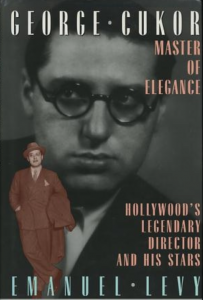George Cukor’s pre-code social satire, Our Betters, was adapted to the big screen from W. Somerset Maugham’s 1923 play of the same title by Jane Murfin and Harry Wagstaff Gribble.
The film premiered at the prestigious Radio City Music Hall in New York City.
Aiming at getting stronger peer recognition, George Cukor invited King Vidor to a preview of his new film, Our Betters. Vidor was one of the most respected directors at the time, having made the pioneering and Oscar-nominated The Crowd and Hallelujah.
Vidor complemented Cukor, but he also honestly conceded that he would never tackle a subject with so “little locomotion.” Vidor felt that the picture was static, but that Cukor somehow had the faculty of keeping it interesting despite this obstacle.
Vidor’s comment reinforced Cukor’s commitment to high-quality texts, knowing that his real forte was in staging lengthy dialogue scenes and getting strong acting from his performers.
Indeed, there is very little action or conventional plot in Cukor’s best films, which are rather noted for their sharp characterization and keen dialogue. The typical Cukor film revolves around a strong character, almost always a woman, faced by a personal-moral dilemma. This dilemma precipitates an inevitable chain of events that necessitate the heroine’s self-examination and reevaluation of her values.
Producer David O. Selznick enlisted Elsa Maxwell, a gossip columnist whose reputation as hostess of successful society parties was widely known, to serve as a consultant for the film’s general tone and its costumes, which were designed by Hattie Carnegie.
Mordaunt Hall, film critic for The New York Times, called the film “a highly praiseworthy pictorial interpretation of the stage work.” He wrote: “It is an intelligently worked out film, thanks to the director, George Cukor, and while it does not bother much about cinematic art, the scenes are always beautifully photographed and nicely staged. It has heaps of amusement and some hearty laughter, and Mr. Maugham’s fine hand still is apparent notwithstanding certain tactful studio changes.”














